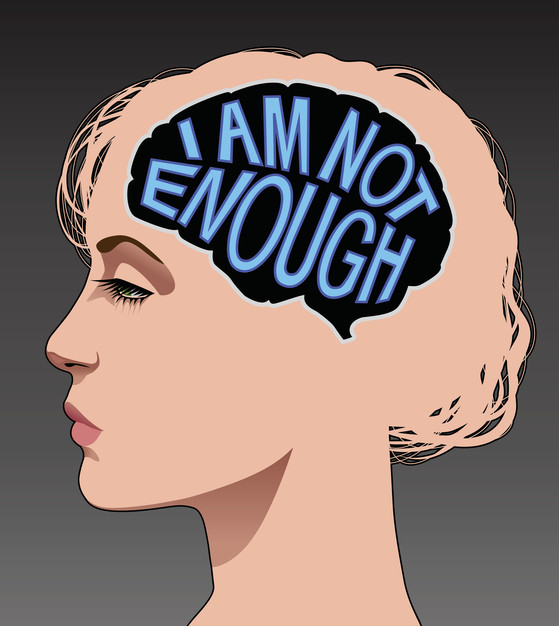
New thinking about plaque in arteries that feed the brain

Want to prevent shifting teeth? Maybe you need retainers

New evidence that polyphenol-rich foods help the heart

What you need to know about the new dietary guidelines

Food that’s healthier for people and planet can be cheaper, too

What are somatic workouts?

How to curb your stress eating

8 simple ways to reduce ultra-processed foods in your diet

How to spot Parkinson’s disease symptoms

Heart failure symptoms in women: How they’re different
Mental Health Archive
Articles
Gender fluidity: What it means and why support matters
Gender fluidity refers to changes over time in gender identity and gender expression. For many people, gender identity and expression develop early and stay the same; for others, one or both may change. Understanding and supporting young people exploring gender is important to their emotional and physical well-being.
Dementia declining in the United States
Research we're watching
According to a study published in the Aug. 4, 2020, issue of Neurology, the number of new cases of dementia in Europe and North America has dropped 13% every 10 years over the past 30 years. Researchers looked at data collected by the Alzheimer's Research Consortium, which included people over age 65 in Europe and the United States.
The actual number of adults with dementia has increased dramatically in recent years as life expectancy increases. The condition currently affects some 47 million people worldwide, and that number is expected to increase in coming decades.
COVID pandemic got you down?
The pandemic has made it especially hard for people with persistent depressive disorder.
Almost everyone goes through rough mental patches. You may feel down, sad, and lethargic. Most people bounce back with no problem, but if these feelings become more frequent and linger longer, you could have a mild, yet still serious form of depression called persistent depressive disorder (PDD), also known as dysthymia.
Older adults are especially vulnerable to PDD, and more so during the COVID-19 pandemic, says Dr. David Mischoulon, a psychiatrist at Harvard-affiliated Massachusetts General Hospital. "While the COVID pandemic affects everyone, older adults have experienced increased stressors like economic issues, prolonged isolation, and the threat of getting sick, all of which can trigger feelings of anxiety and depression beyond the norm."
How to avoid a relapse when things seem out of control
This year has been extremely stressful for everyone, and that stress can lead to harmful habits. For those working to stay in recovery from an addiction, the challenge is even more profound. Those in this situation know that the more stressful things are, the more important it is to practice the healthy habits that sustain recovery.
Blood test could find Alzheimer’s disease before symptoms appear
In the journals
Researchers are close to finding early cancer with a blood test. They may soon do the same with Alzheimer's disease. A new blood test called p-tau217 has shown great promise in diagnosing people with the disease, according to findings published online July 28, 2020, by JAMA.
The test looks for a specific type of tau protein in the blood. In people with Alzheimer's, tau protein in the brain forms tangles. Accumulation of tau protein tangles along with beta-amyloid deposits is thought to play a key role in how the disease develops.
Happy holidays?
Here's how to cope when your usual traditions get uprooted.
The holiday season, like just about everything else this year, probably won't look the same as usual. Whether that means going to smaller gatherings without the usual relatives, quarantining when traveling, or staying home entirely, chances are something will be different this year thanks to the COVID-19 pandemic. For many who look forward to a full table at Thanksgiving or a big party on New Year's Eve, these changes are unwelcome, and frankly a little depressing.
In response, people may experience emotions ranging from guilt to loneliness to a feeling of disconnected sadness, says Dr. Hilary Connery, assistant professor of psychiatry at Harvard Medical School.
Talking to your doctor about an abusive relationship
Intimate partner violence can occur between people of any gender or sexual orientation. Abuse can leave people feeling isolated, confused, or hopeless, and talking to a health professional is one way to get help in the form of medical treatment or access to appropriate services.
Trauma-informed care: What it is, and why it's important
Because medical exams are invasive, and because many people have experienced some form of trauma and may be uncomfortable with aspects of the exam, healthcare providers should approach care with consideration for what patients may have experienced.

New thinking about plaque in arteries that feed the brain

Want to prevent shifting teeth? Maybe you need retainers

New evidence that polyphenol-rich foods help the heart

What you need to know about the new dietary guidelines

Food that’s healthier for people and planet can be cheaper, too

What are somatic workouts?

How to curb your stress eating

8 simple ways to reduce ultra-processed foods in your diet

How to spot Parkinson’s disease symptoms

Heart failure symptoms in women: How they’re different
Free Healthbeat Signup
Get the latest in health news delivered to your inbox!
Sign Up











